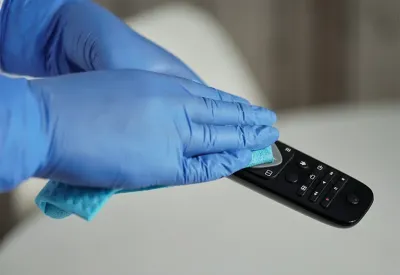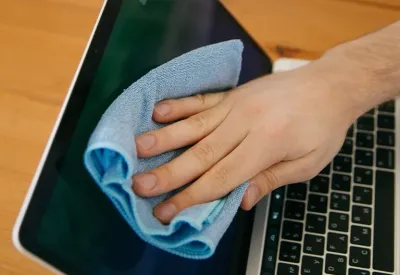Certifications
All our electronics grade alcohol is ISO 22000 certified and compliant with REACH. Additionally, we can certify your product as Kosher, Cosmos-approved, USP Grade or GMO-free. More information can be found on our certifications page.
Electronics can easily be damaged if they come in contact with minerals or ionic compounds. These can disrupt the designed flow of electrons within a component, potentially causing it to short circuit or in some other way malfunction, sometimes doing irreparable damage. While the presence of water in a solution greatly increases the risk of corroding electronics equipment.
Some electronic equipment and components are more sensitive than others. If a semiconductor comes into contact with the wrong cleaning solution, containing even the minutest quantities of dissolved minerals, there is a good chance it will be damaged beyond repair. The same is true of more sensitive sensors. Circuit board plastics are tougher, but they can be subject to corrosion if exposed to the wrong cleaning solution, and then tend to be very costly to replace.






Isopropyl alcohol (also known as IPA, isopropanol or 2-propanol) is the most commonly used solvent in the electronics industry. This is because it is compatible with most materials used in electronics equipment and, unlike electronics-grade ethanol, never leaves oil traces.
Electronics-grade isopropyl alcohol dissolves a wide range of polar and non-polar soils, and is used to remove everything from fingerprints and light oils to flux residues and cutting fluids. It is also widely used for printed circuit board (PCB) assembly, cleaning and repair work, for which a minimum 99.9% grade isopropyl alcohol is advised.
And finally, because isopropyl alcohol is miscible in water and evaporates rapidly, it also works as a highly efficient drying agent.
The 99%+ purity of isopropyl alcohol means it is used for manufacturing virtually every kind of electronic products on the market today, including:




Though ethanol for cleaning electronics is a slightly cheaper solution than isopropyl alcohol, and works fine in a great many contexts, the preferred electronics-grade alcohol across the electronics-related industries is isopropyl alcohol. Though other benefits may be a factor (for example, that isopropyl alcohol evaporates faster than ethanol), ultimately people choose isopropyl alcohol to clean electronics because it is the safest choice, especially for cleaning very sensitive components like sensors and semiconductor materials.
To create a denatured ethyl alcohol for electronics that fits your needs, we can customize it with your preferred combination of denaturants. The denaturing means lower taxes often apply to alcohol. Choose (a combination of) the following denaturants to create a product that meets your demands:


All our electronics grade alcohol is ISO 22000 certified and compliant with REACH. Additionally, we can certify your product as Kosher, Cosmos-approved, USP Grade or GMO-free. More information can be found on our certifications page.
Get in touch with our commercial experts and get your tailored offer.